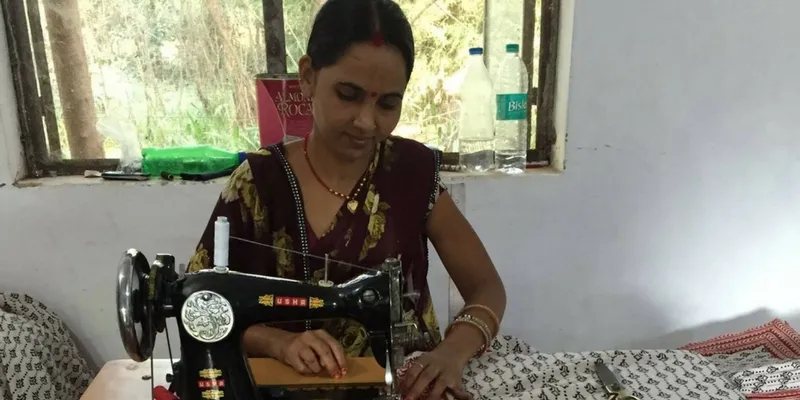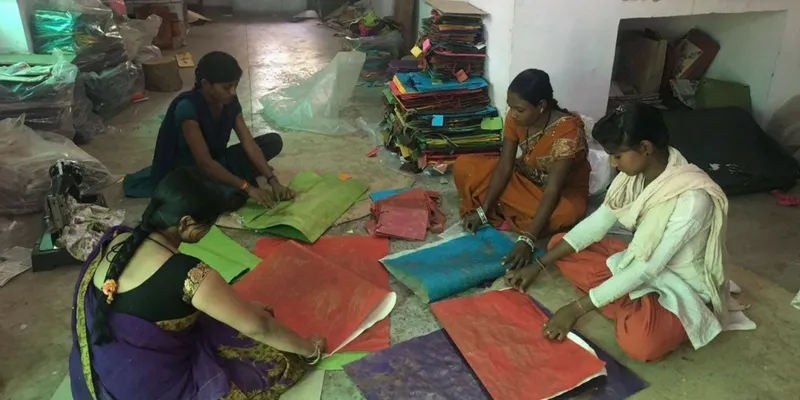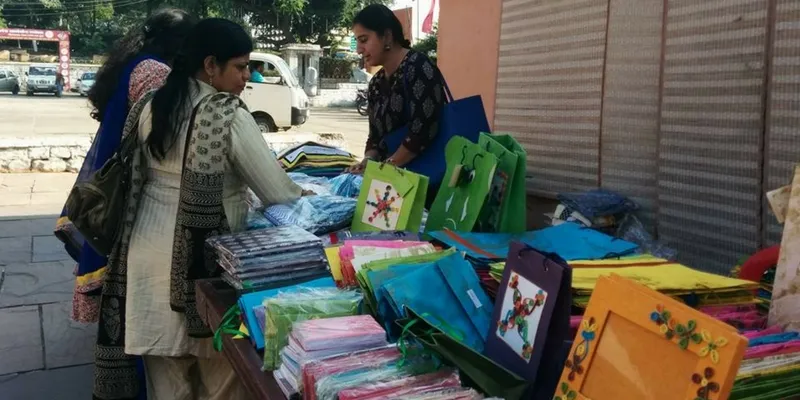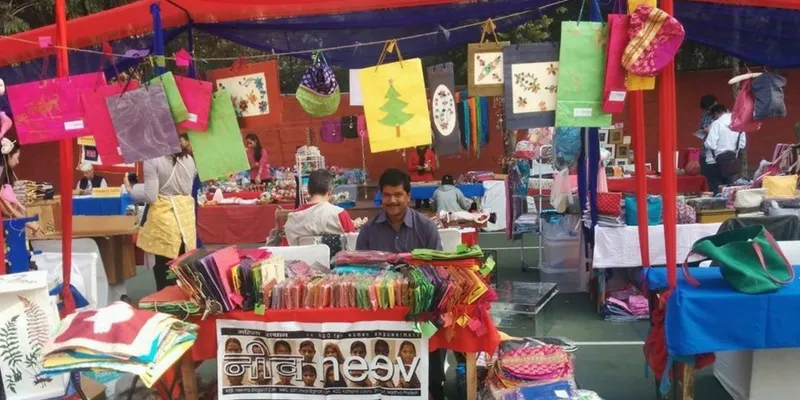How this NGO helps rural women generate annual turnover of Rs 7 lakh through handmade products
Through Neev, rural women in Shivpuri, Madhya Pradesh have a chance to hone their skills and earn a steady income.

Four students studying in England wanted to make an impact in the lives of the poor and underprivileged and founded Neev.
Neev aims to achieve their objectives by encouraging women to learn skills such as sewing and art and crafts so that they are able to sustain themselves.
Neev’s inception and purpose
Aditi Diwan, 31, who is one of the founding members, did her MA in Poverty and Development from the University of Sussex, England. Her experiences and internships during her master's and her upbringing in the small rural town of Shivpuri, surrounded by inequality and lack of opportunity, kept sparking her interest in development.

Neev Foundation is an NGO based in Shivpuri, Madhya Pradesh aiming to address poverty, illiteracy and give opportunity to the affected people so that they can lead a better life. Neev gets it funds from sales at exhibitions, online sales and the proceeds from the food they sell at the Happydays School’s canteen. Aditi’s family members, Mandakini Puri, Malika Mehra and Rashmani Singh, support Neev by conducting product exhibitions at New York, Switzerland and Delhi, respectively.
Neev’s Projects
Currently, Neev is working with over 25-30 women from Thakarpura, Nohri, Kathmai and Binega villages in Shivpuri. These women represent a mix of married and single women. Getting them on board and keeping them remains a challenge for the NGO. “It is challenging to convince the women to come work for us; sometimes they leave mid way once they get married,” Aditi adds.
Their first project engaged the women in making bags out of newspapers, which were sold in local stores in Shivpuri. The idea behind the project was to reduce the abundant usage of plastic and give underprivileged women an opportunity to learn a new skill. “We struggled with this since the shops did not want to buy the bags due to their cost and the local authorities did not impose a blanket ban on plastic bags,” says Aditi. The paper products are priced between Rs 50 and 150.

Soon after the first project, the women were taught to make gift bags, photo frames, file folders, diaries and greeting cards. Savitri, who works at the Aurobindo Ashram in Delhi, trained them in making handmade paper. Savitri rejoices when she thinks about how they have come a long way from working out of a cow shed in 2009. Umi Diwan, Aditi’s grandmother also teaches these women. “I love teaching the Neev ladies new patterns and designs; it's an enriching experience for me to work alongside them,” Umi says.
This was also the time when they taught the women how to stitch and sew. Neev bought sewing machines with the help of which women could make tablecloths, bed covers and cushion covers, a shot at expanding their skill set and opportunities.
Neev has also helped open savings accounts for these women at the post office so that they can have access to their savings. The women are paid on a per-piece basis; the more pieces they make, the more they earn. Depending on what they make, the daily stipend can range from Rs 100–200.

Opportunity for youth
Neev is helping to create opportunities for impoverished youth through education. For this, they have collaborated with the Happydays School. Through this they plan to help the Sahariya Adivasi tribal children of Katmai and Binega villages. These students were enrolled in government schools prior to this, but faced problems due to teacher absenteeism and uninspired teaching.
Neev funds 15 Adivasi students enrolled in the Happydays School. They also run the school canteen where two women cook the meals and sell it to students.

The road ahead
The biggest challenge for Neev at the moment is scaling up their operations. They are on the look out for stores and shops that they can tie up with and provide products made by the women. Additionally, they are also looking for a few designers who can help them widen the range of their products with new designs and patterns. They are also looking for a person in marketing or sales who can help them figure out a way to boost up their online sales.
Their turnover is around Rs 6-7 lakh per annum. Neev wants to increase the number of women engaged in making these products and wants to be able to pay them more. To this end, they want to work on convincing shops to display their products, an ongoing effort for the NGO.







